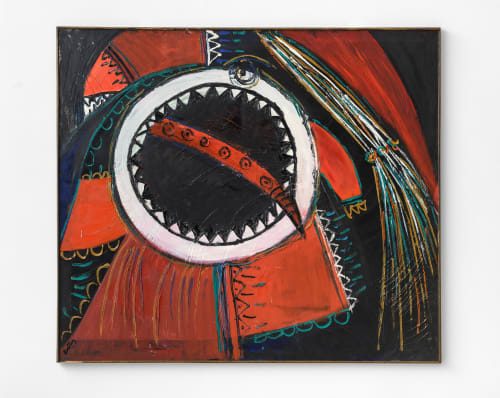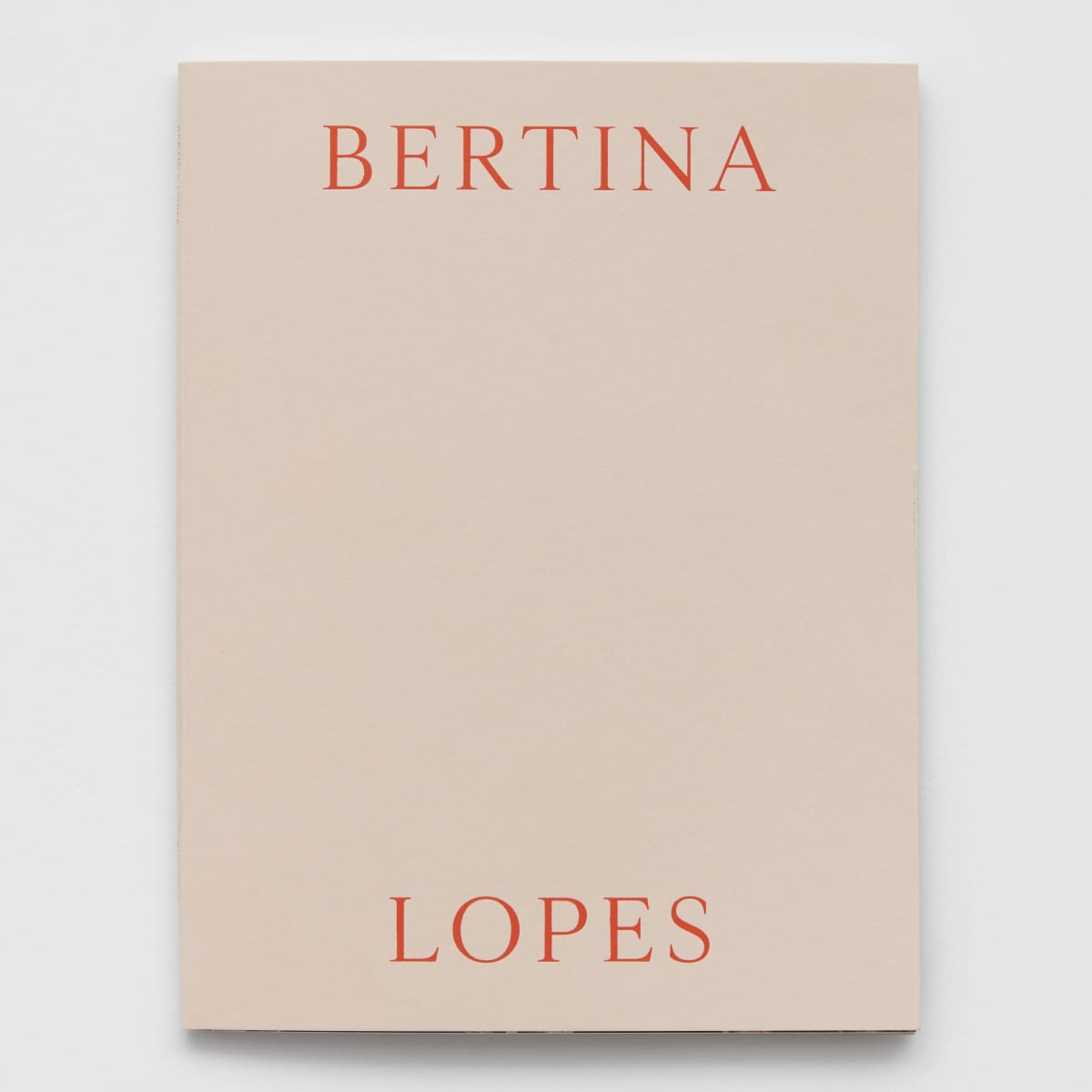Bertina LOPES
Richard Saltoun Gallery inaugurates its programming in Rome with a special solo exhibition of works from the estate of Mozambican-Italian painter Bertina LOPES (1924–2012). Considered the mother of contemporary African painting, Lopes was one of the earliest pioneers to bridge the gap between African and European art. Her work has become a symbol of political activism and social criticism, and her story is unique in contemporary art and politics.
Born under colonialism in Mozambique, Lopes completed her art studies in Lisbon and returned to Maputo as a teacher in 1953. Her contact with her country’s poets, writers, and political activists was fundamental in forming her anti-fascist and anti-colonial beliefs. This forced Lopes to leave Mozambique in 1961, returning to Lisbon to continue her artistic work. Prosecuted by the PIDE (Portuguese International and State Defence Police), she fled Portugal, arriving in Rome in 1963 thanks to a scholarship from the Gulbenkian Foundation in Lisbon.
Although it was not easy for an African artist in Italy to attain recognition, Lopes covered a vital role in the capital, later serving as the cultural attaché of her country's Embassy. Her rooftop apartment was famous for its dinners hosted with her husband Francesco Confaloni; a salon for African and European diplomats, journalists, and intellectuals. She befriended many of the protagonists of the Italian art scene, including Marino Marini, Renato Guttuso, Carlo Levi and Antonio Scordia as well as critics and museum directors.
Lopes represented Mozambique in numerous official cultural exhibitions worldwide, twice in the Venice Biennale, and received awards and citations for her efforts in promoting both art and peace. Despite her trailblazing work - subject of two exhibitions at the Gulbenkian Foundation in Lisbon (1973; 1979) and two major retrospectives in Rome at Palazzo Venezia (1986) and Palazzo della Cancelleria Apostolica (2002) - Lopes rarely worked commercially.
Marking the 10th anniversary of the artist's death, the exhibition at Richard Saltoun Gallery celebrates her 70-year-long career by bringing together an important historical selection of Lopes' paintings. These include Grido grande [Big cry] (1970) and In memoriam de Picasso [In memory of Picasso] (1974). The latter is one of Lopes’ most important and intense works on canvas, a homage to the death of Picasso, whom she had met in the last days of his life and considered the “genius of the 20th century”.
The Archivio Bertina Lopes played a pivotal role in the production of this exhibition, which marks the debut of the gallery’s collaboration with the Lopes Estate and the artist’s first commercial international representation. Archivio Bertina Lopes was founded after the artist's death in 2012 to preserve her legacy and her house/studio. A catalogue with a text by Mary Angela Schroth, director of Sala 1 in Rome and long-time friend of Bertina, will be published to accompany the exhibition.










